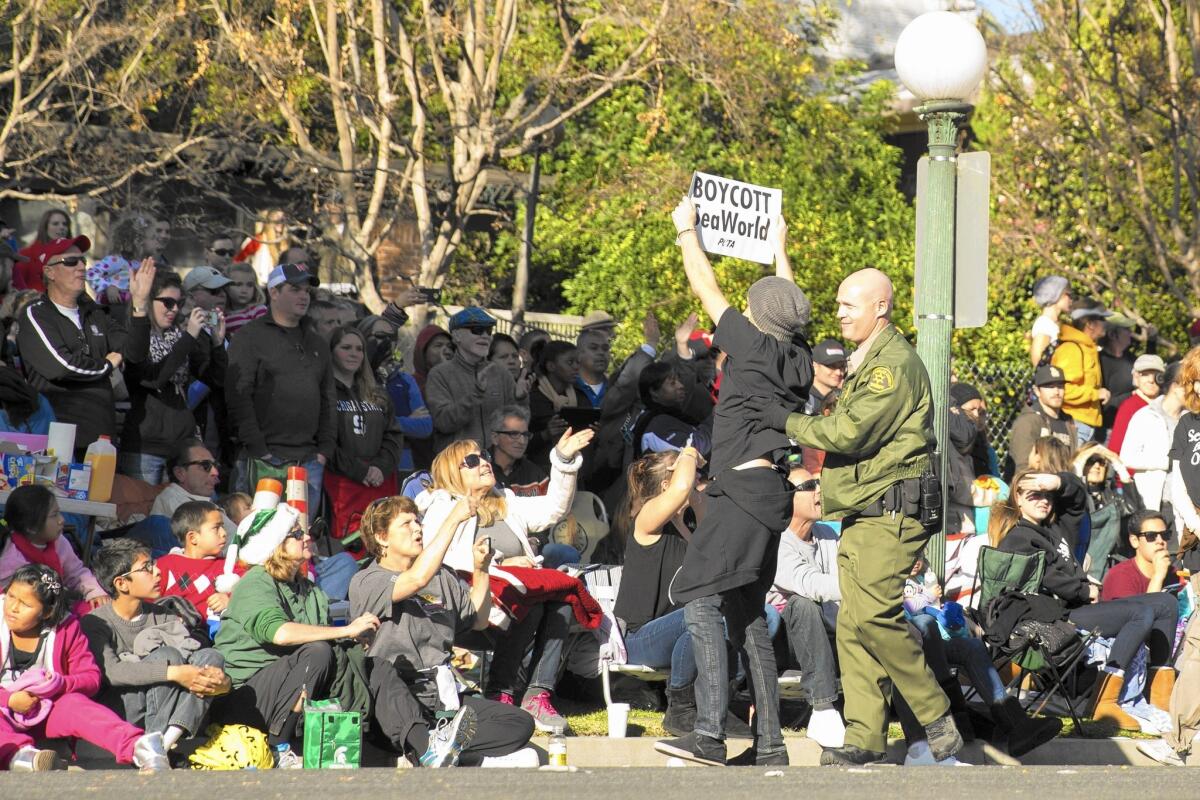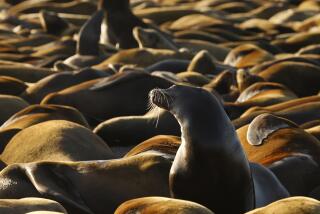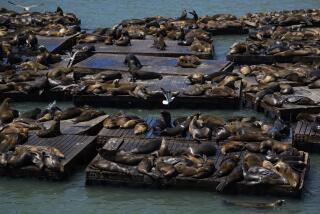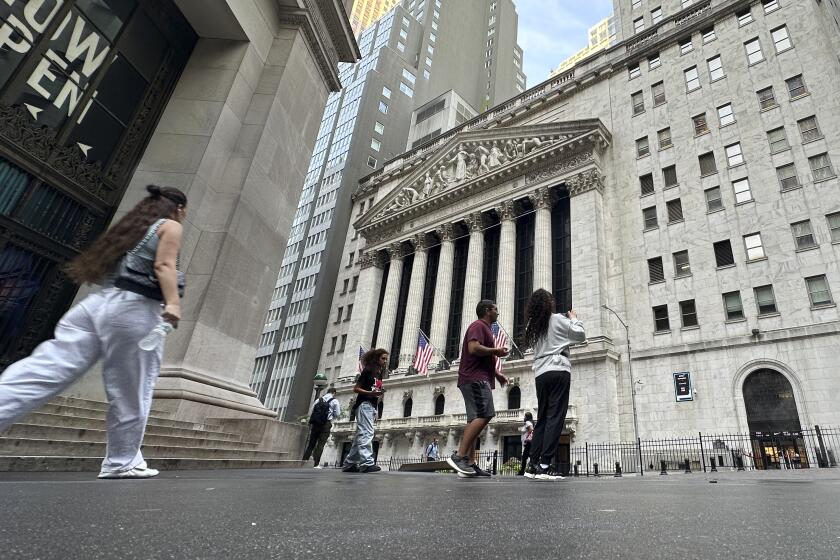PETA rakes in more donations as it denounces SeaWorld

Preaching against SeaWorld apparently has paid off for PETA.
People for the Ethical Treatment of Animals recently told potential benefactors that it is under attack by “wealthy and organized opponents” to its causes, especially the fight to free captive orcas at SeaWorld parks.
“Please help PETA stand up to those trying to thwart our efforts to protect animals from suffering,” the animal-rights group urged in a fundraising email.
Donors have been listening.
In its most recent financial report, the organization reported $43.5 million in contributions for the year that ended July 31, a 30% increase over donations made in the same period two years earlier, before PETA intensified its campaign against SeaWorld Entertainment Inc., Ringling Bros. Circus and other animal-performance businesses.
PETA’s recent financial reports signal a turnaround for the controversial nonprofit, which posted an operating deficit of $28,000 in 2013. Two years later, the group reported an annual operating surplus of $4.5 million.
Among the visible protests during that rebound: PETA members jumped in front of SeaWorld’s float at the 2014 Rose Parade — a scene broadcast by CNN and other national news outlets. The group also installed a large poster at San Diego International Airport last year, urging the 130,000 people attending the annual ComicCon gathering in San Diego to boycott SeaWorld.
And most recently, PETA has created an advertisement blasting SeaWorld’s orca breeding program. The ad, which the organization is trying to place on a billboard in the San Diego area, features an apparently nude man riding an inflated killer whale toy with the message, “SeaWorld: Where grown men perform sex acts on orcas.”
SeaWorld executives declined to comment on PETA’s fundraising efforts.
PETA has campaigned against animal cruelty since the organization was formed in 1980 and began to target SeaWorld since at least 1998.
But PETA efforts against SeaWorld gained a boost with the 2013 release of the documentary “Blackfish,” a film that accused SeaWorld of neglecting the company’s 11 whales by keeping them captive at its parks in San Diego, Orlando, Fla., and San Antonio.
SeaWorld representatives have said that the film is inaccurate and unfair. The company has been fighting back with a $10-million advertising campaign defending its treatment of whales and promoting SeaWorld’s work to benefit animals. The company also pledged an additional $10 million last year to fund conservation of orcas in the wild.
Will Coggin, a longtime PETA critic and director of research for the nonprofit Center for Consumer Freedom, said “Blackfish” may represent a turning point for the animal-rights group, long known for orchestrating shocking protests that feature nude demonstrators and fake blood.
“Before, it was easy to write them off as basic lunatics,” he said. “ ‘Blackfish’ may have given them certain credibility in this one issue.”
The website that PETA created to call attention to its campaign against SeaWorld — called SeaWorldofhurt.com — had a surge in visitation numbers after “Blackfish” debuted.
Before the October premiere, the website drew as few as 20 to 30 visitors per day. For all of 2015, the site drew 1.3 million visits.
Website analysis by Similarweb.com found that the top search terms that drew visitors to the site were “Blackfish,” “SeaWorld documentary” and Tilikum, the name of the orca that was featured in the film.
See more of our top stories on Facebook >>
PETA’s financial records also show that the group collected $567,000 in revenue from merchandise sales in the 12 months that ended July 31, a 19% uptick from the same period in 2013.
Visitors to PETA’s website can purchase 14 different anti-SeaWorld items, including a “SeaWorld sucks” T-shirt that sells for $21.99. The site also sells tote bags, pillows and hats that condemn SeaWorld and call for the killer whales to be set free.
PETA representatives attribute the increase in donations to an expanding roster of campaigns against animal abuse, including the SeaWorld battle. They emailed a statement but declined to discuss their fundraising efforts further.
“As a nonprofit organization, we’re grateful for — and spend — whatever we’re given to further our work to abate and end cruelty to animals,” according to the statement by PETA Senior Vice President Lisa Lange.
“Opposition to SeaWorld is only one component of our campaign against the use of animals for entertainment, which, in turn, is only one of our many campaigns on behalf of animals,” Lange said.
The statement goes on to say that PETA has spent “enormous resources” to rescue “many animals, including bears from concrete pits, chimpanzees from barren cells, and so on.”
Critics of the notoriously brash group accuse PETA of staging loud protests and making outrageous accusations to generate donations without putting forth any real-world solutions.
“It’s called the animal-rights business,” said Russ Rector, an animal-rights advocate and former dolphin trainer. “They are making … money but they didn’t spend it doing anything.”
PETA’s campaign has, however, helped play a role in reducing attendance at SeaWorld’s marine-themed parks and dropping the value of SeaWorld shares.
Attendance at SeaWorld fell 4.2% in 2014 compared with the previous year, according to SeaWorld.
Despite efforts by SeaWorld to respond to attacks by PETA and other animal-rights groups, attendance has not recovered. In the first six months of 2015, attendance remained nearly flat compared to the same period in 2014 at 9.69 million.
Shares of SeaWorld Entertainment have lost nearly 40% of their value since October 2013, when “Blackfish” was released, dropping from $29.73 to $17.94 as of Friday.
Twitter: @hugomartin
MORE FROM BUSINESS
What a recession does to your money
Airlines raise fares for the second time this year
Break up big banks, suggests the Fed’s Neel Kashkari, who ran 2008 bailout fund
More to Read
Inside the business of entertainment
The Wide Shot brings you news, analysis and insights on everything from streaming wars to production — and what it all means for the future.
You may occasionally receive promotional content from the Los Angeles Times.







